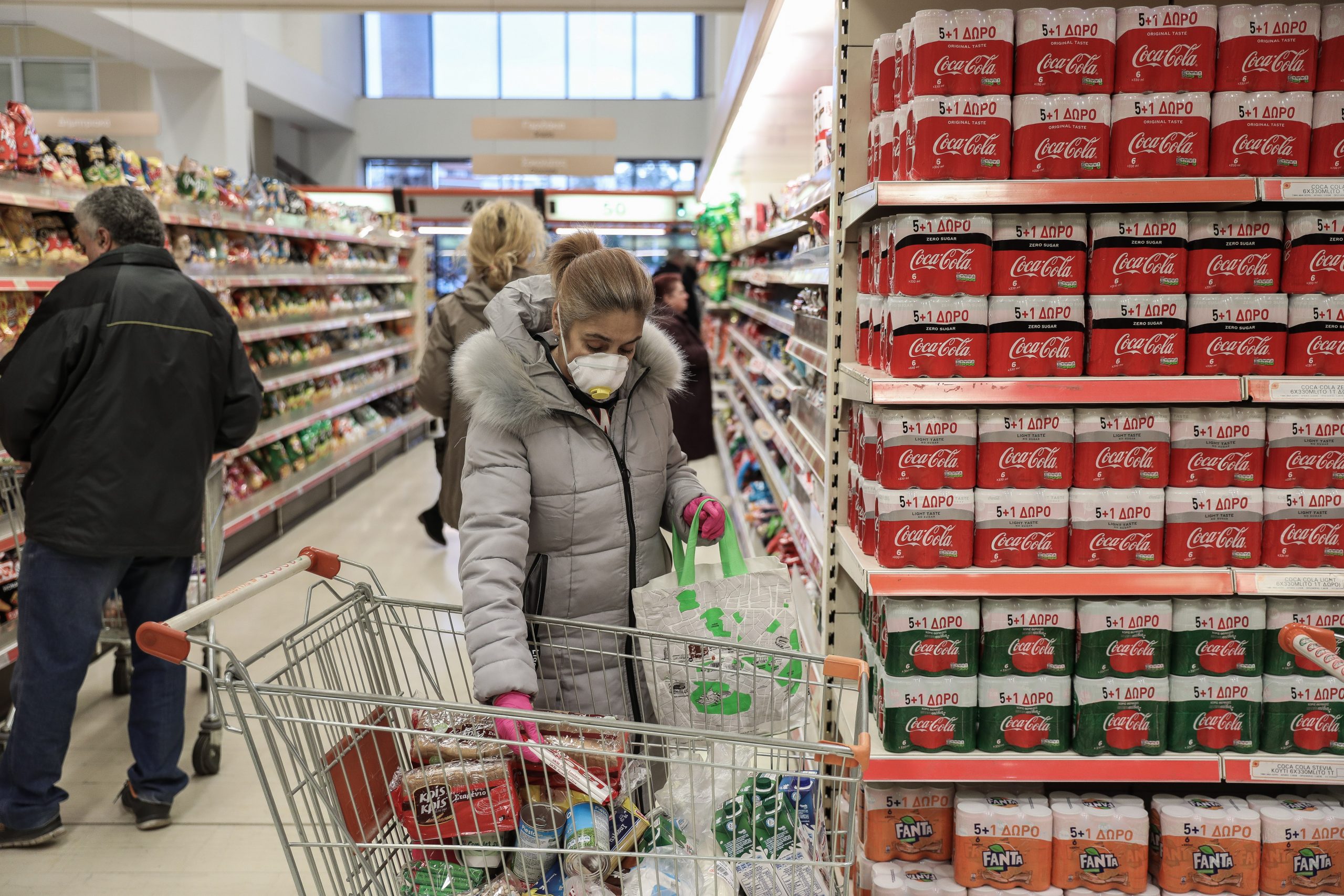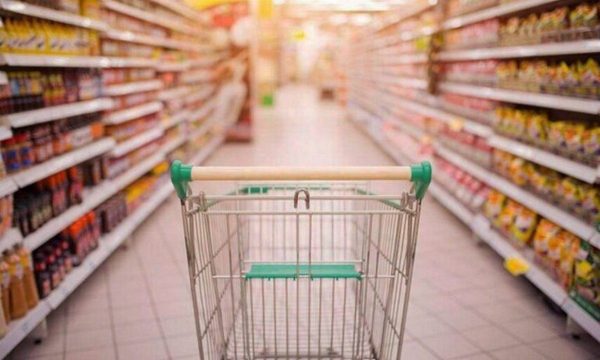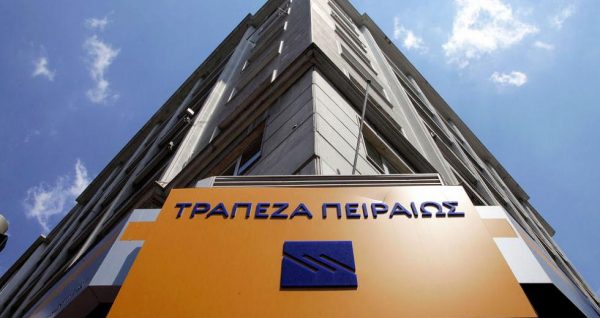
Consumers are experiencing a constant shock from constantly rising ahead of a bleak winter, as they now increasingly choose private label products, sale items and bulk food to fill their supermarket baskets only by half.
Prices rise for the 16th straight month
The upward trend of the “Food and non-alcoholic beverages” sub-index, which started last year in June, continued in September this year, as can be seen from the data of the Hellenic Statistical Authority, with the pressure multiplying for the economically vulnerable. It is recalled that poorer households spend more than 1/3 of their monthly budget (34.8%) on food.
Also read: Greek supermarkets and their suppliers lowering profits to keep costumers – The fears for 2023
Due to the higher prices, which are reflected in the extra turnover for supermarkets (sales reached 5.42 billion euros in value in the 8 months of this year compared to 5.23 billion euros in the corresponding period of 2021, according to the market research company IRI ), consumers are reducing the volume of their purchases, with the gap between the growth rate of sales value and sales volume widening month by month.
Also read: Supermarkets: Inflation reinstates private label products as leaders of the pack
In the January-August 2022 period, sales volume fell by 1.6% compared to the same period in 2021, while supermarket turnover increased by 3%, according to the latest available IRI data.
Increases of 19.3% in 11 months
It is characteristic that in a list of 25 branded products the total bill has risen by 19.3% compared to last November when inflation started to show its teeth.
Even excluding products that were disproportionately affected by the war in Ukraine, the appreciations are reminiscent of drachma times.
Specifically, from November 9, 2021 to October 5 this year, the average price of a liter of branded sunflower oil has risen by 90%, according to data from the Ministry of Development’s e-Consumer electronic platform.
As for corn oil (one liter) the increase reaches 41% in the same period, while a kilo of all-purpose flour is sold on the shelf 35.6% more expensive.
And if the price increases in the above products are expected due to the supply chain crisis, the high double-digit price increases in other products, in the categories of food, household goods and personal care and hygiene, show that price hikes due to energy costs have spread everywhere.
For example, the price for three kilos of potatoes has increased by 50.5% in 11 months. Correspondingly, for a 500-gram package of yogurt, the price hike reaches a rate of 46%, while for a 400 ml bottle of liquid dishwashing detergent, a rate of 38%. The rise in the price of 8 rolls of branded toilet paper (+38%) is similar.
Six medium eggs cost 33% more compared to November 2021, a liter of fresh milk is 22% more expensive, while the price for a 400g packaged slice of feta is 20% higher. An increase of 22.8% must be paid by the consumer for a 160 gram package of smoked turkey, while for sliced bread 8.5% and for the instant coffee 7%.
Third wave of increases
But the point is that shelf markups don’t seem to be stopping, with supermarket industry executives estimating that the average increase in the fast-moving code basket could reach as much as 15% by the end of 2022.
Product categories that are set to increase in price within October include poultry, frozen vegetables, dairy, cold meats, soaps – detergents – cosmetics, olive oil and stationery.
Smaller basket…
In this unprecedented situation, the Ministry of Development is proposing the “basket” of 50 basic products as a brake on what is yet to come, although everyone admits that this is a difficult exercise.
This is because the price increases in this list of products, which will include food (meat, vegetables, fruit, flour, dairy, coffee, oils, cereals, eggs, pasta, legumes, tomatoes, sugar, frozen, snacks, etc.) and non-food (detergents, general purpose cleaning products, stationery, personal hygiene products), are not prohibited. Nor is a “freeze” imposed. There is simply a commitment that the mark-ups are lower compared to the rest of the corresponding products and that new “go” on the shelf at less frequent intervals.
Moreover, in order to reach the goal of smaller price increases, the agreement of the suppliers should also be ensured, when the operating costs of the companies have soared due to energy and raw materials costs.
For this matter, the Minister of Development, Adonis Georgiadis, will have a meeting with industry representatives next week, while he assured the president and members of the administration of the Central Union of Chambers that the subsidization of electricity and natural gas bills will continue for all Greek businesses.
Latest News

Lavrio Port Authority Next Up for Privatization
A deadline for the submission of expressions of interest is May 14, 2024

Eurostat: Greece Records Largest Drop in Natural Gas Prices in 2nd Half of 2023
The price of electricity and natural gas in Europe was down following a substantial surge that began before the Russian invasion of Ukraine and peaked in 2022

GEK TERNA Still Considers Leveraging Concessions Portfolio as Financial Tool
President and CEO of Gek Terna George Peristeris explained the company's plans on Tuesday on the sidelines of the inauguration of sections of Greece's E65 highway

NielsenIQ: 3% Supermarket Revenue Increase in Q1
Private label products are gaining traction, comprising 25.4% of shopping basket shares, up from 24.7%

Store Hours Change Today in Observation of Orthodox Easter
The President of the Athens Chamber of Commerce hopes the Easter period will provide a much-needed boost to retail traffic in the capital

Athens-area Mass Transit Systems Set to Finally Install Contact-less Fare Payment
Paying fares via bank cards, smartphones and smartwatches in all mass transit systems in the Greek capital, namely, buses, trolleys, the metro and tram lines, is scheduled by the end of the year

Council of State Rejects Motion Against Thessaloniki Motorway Project
The motion was filed earlier this month by three local citizens’ and environmental groups and generated a high court decision for a temporary stay in construction

Greek 30Y Bond Issue Oversubscribed by 11 Times
Very high demand pushed down the coupon's interest rate to 4.125%

Athens Int’l Airport Wins Top Prize at Routes Europe Awards
The Routes business is focused entirely on aviation route development and the company's portfolio includes events, media and online businesses

IOBE: Income Gap Between Poor and Wealthy Greeks Widens
The findings in the analysis, entitled “Progressivity in Income Taxation in Greece, 2012-2021", paint a bleak picture for Greeks in the bottom half of the income bracket, warning that income inequality is growing












































 Αριθμός Πιστοποίησης Μ.Η.Τ.232433
Αριθμός Πιστοποίησης Μ.Η.Τ.232433